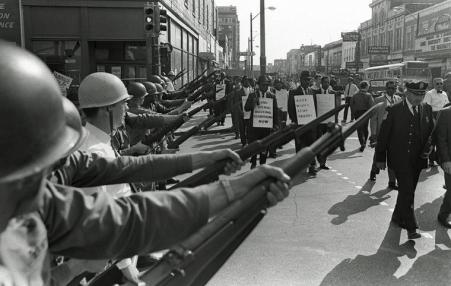This Labor Day, Remember That MLK’s Last Campaign Was for Workers’ Rights
Portside
 Reader Comments: Parkland vs. NRA; Trump's Arming of Teachers - Not; Criticism of Pledge to Transform the Resistance, and America; Labor - War on Workers, Labor in the 70s, Janus, West Virginia Teachers on Strike; Science; Sex and Drugs; I AM 2018 - The Fight Continues - Memphis - April 2 - 4; and more.....
Reader Comments: Parkland vs. NRA; Trump's Arming of Teachers - Not; Criticism of Pledge to Transform the Resistance, and America; Labor - War on Workers, Labor in the 70s, Janus, West Virginia Teachers on Strike; Science; Sex and Drugs; I AM 2018 - The Fight Continues - Memphis - April 2 - 4; and more.....
 Jerry Wurf, the national president of the public workers union American Federation of State County and Municipal Employees, considered the Memphis sanitation workers’ protest more than a strike; it became a social struggle, a battle for dignity. Wurf called the strike a “race conflict and a rights conflict.”
Jerry Wurf, the national president of the public workers union American Federation of State County and Municipal Employees, considered the Memphis sanitation workers’ protest more than a strike; it became a social struggle, a battle for dignity. Wurf called the strike a “race conflict and a rights conflict.”
Spread the word